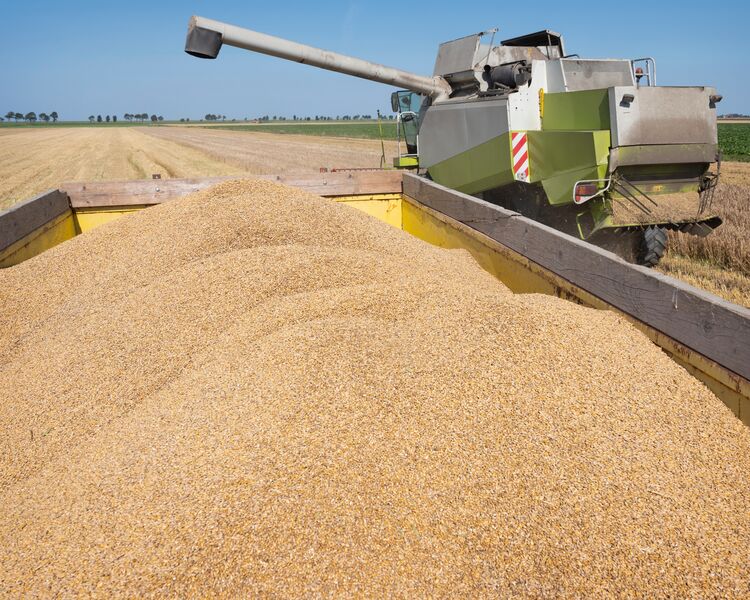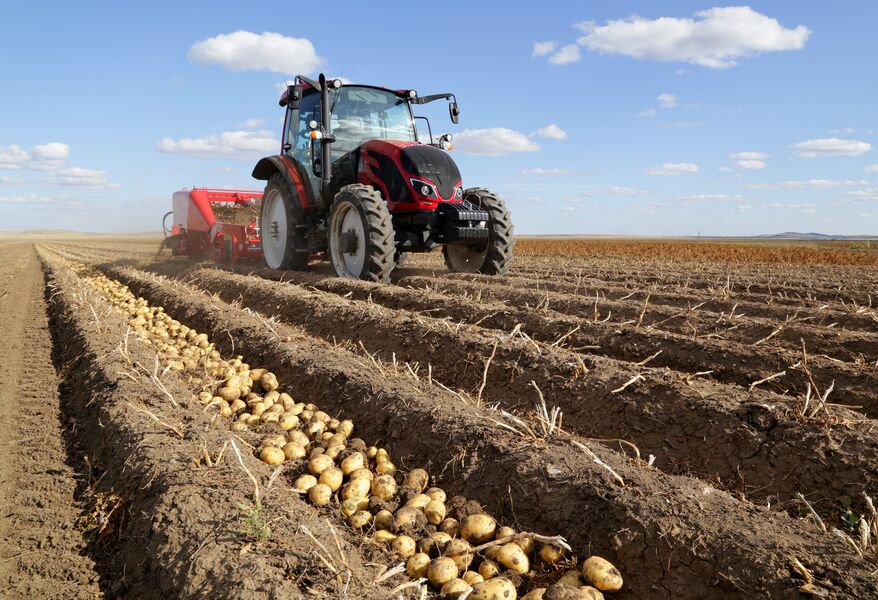How ‘food secure’ is the Netherlands?
‘Food security, in harmony with nature, remains an essential task’, Ursula von der Leyen, president of the Europen Commission, stated in her ‘State of the Union’ in September. The phrase food security is increasingly heard. The Russian incursion in Ukraine sparked the threat of shortages, leading to empty supermarket shelves. But how food (in)secure are we in the Netherlands? The Financieel Dagblad (Financial Daily) asked WUR president Sjoukje Heimovaara to contribute a piece to the 18 December edition.
What might happen if food imports and exports were to stop suddenly was studied no less than ten years ago. It showed that the Netherlands is able to provide its citizens with healthy food, albeit with adjustments both in our eating habits and in what we produce. Let’s consider the needs of our own population. We produce too little grain, fruits and oil crops and too many potatoes and animal products. We can change that, but it will take time. I restrict myself to essential foods and ignore products such as coffee, tea, avocados and so forth.
A realistic and attractive view on food security means that retreating behind our dykes is not the best option.
Would that make the Netherlands entirely 'food secure'? No, because we depend on imported fertilisers such as phosphate and potash, which we procure mainly from Morocco, Belarus and Russia. Moreover, recent food price increases show how dependent we are on affordable energy.
European scale
A realistic and attractive view on food security means that retreating behind our dykes is not the best option. A better option is to view the Netherlands as part of a robust European Union. Food security is already a feature on the EU’s agenda. From a European perspective, fewer drastic changes are required for the Netherlands to continue to provide its citizens with healthy food. We would lack some oils, fats and tropical products, but we would have more than enough grains and fruits. Furthermore, we would be able to produce products there where the soil and climate are best suited for that particular product. Our polders and the fertile chernozem soils in central and eastern Europe would be optimally suited for field crops, while poorer soil could be used for extensive (livestock) farming.

So, can we rest safe in the knowledge that our food security is guaranteed? Sadly, no. The great food crises in recent decades were almost all the result of conflicts. Hunger, or the threat of hunger, is often leveraged in conflicts, as is currently seen in Ukraine, Gaza and Sudan. Hence, political stability is the best global answer to a lack of food security.
Above all, there are developments such as climate change and biodiversity loss. Although these may seem less pressing, they are the true threat to food security. Von der Leyen’s statement on the need for ‘harmony with nature’ for food security is therefore justified.
Extreme drought caused part of the grain and olive harvests in Spain and Portugal to fail last year, while harvests in Northern Italy failed as a result of flooding. The British fear they may have to resort to importing potatoes from Egypt for their Christmas dinner. Too much or too little rain has been an issue throughout the ages, but the intensity and frequency with which these issues now occur are not. And as always, those most affected are the world’s most vulnerable groups.
Half of our global calorie intake comes from just three crops.
The changing climate also causes biodiversity loss. Struggling polar bears may spring to mind, but for our food security, the extensive loss of crop diversity is a more significant issue. Half of our global calorie intake comes from just three crops (wheat, rice and maise). The world’s largest rice exporter, India, restricted its exports last year due to disappointing harvests as a result of extreme weather. Such restrictions will occur with greater frequency in the future.

Climate-robust crops
We need crops that are resilient against drought, heat, salinity and new plagues and diseases. To that end, we need as much diversity as possible. Since rice is so climate-sensitive, India is now focussing on the more climate-robust millet as an alternative.
Back to the Netherlands. ‘No farmers, no food’ is a frequently heard phrase. An obvious truth. But to ensure food security in the future, agriculture must change. We must make haste with future-proof food production that does not burden the climate and biodiversity. New methods, new crops and, most of all, a new attitude towards sustainable agriculture and food policy is sorely needed. The larger the region in which we achieve this new way of thinking and acting, the more robust our food supply will become. European collaboration will lead to a more affordable, healthier and varied food supply. And if we go global, we will be able not only to design a just system but also achieve greater stability.
It is said that ‘food is the 21st century’s gold’. But if we steer towards sustainable, healthy, and affordable nutrition, we won’t have to pay the gold price, just a fair price.